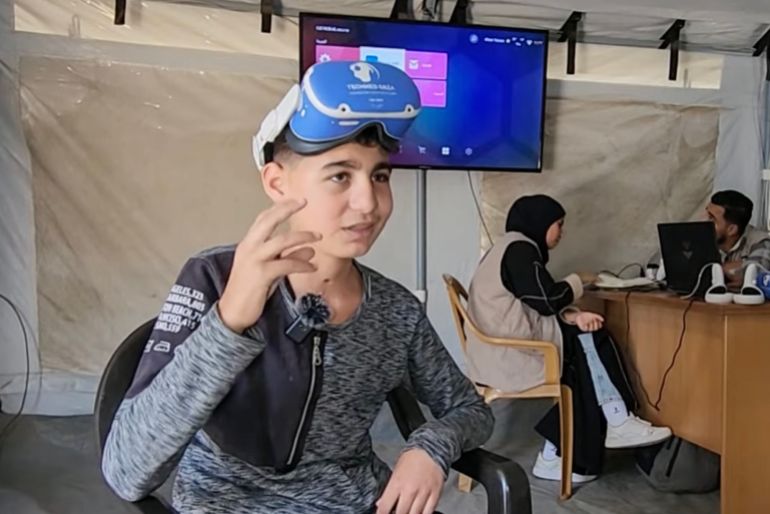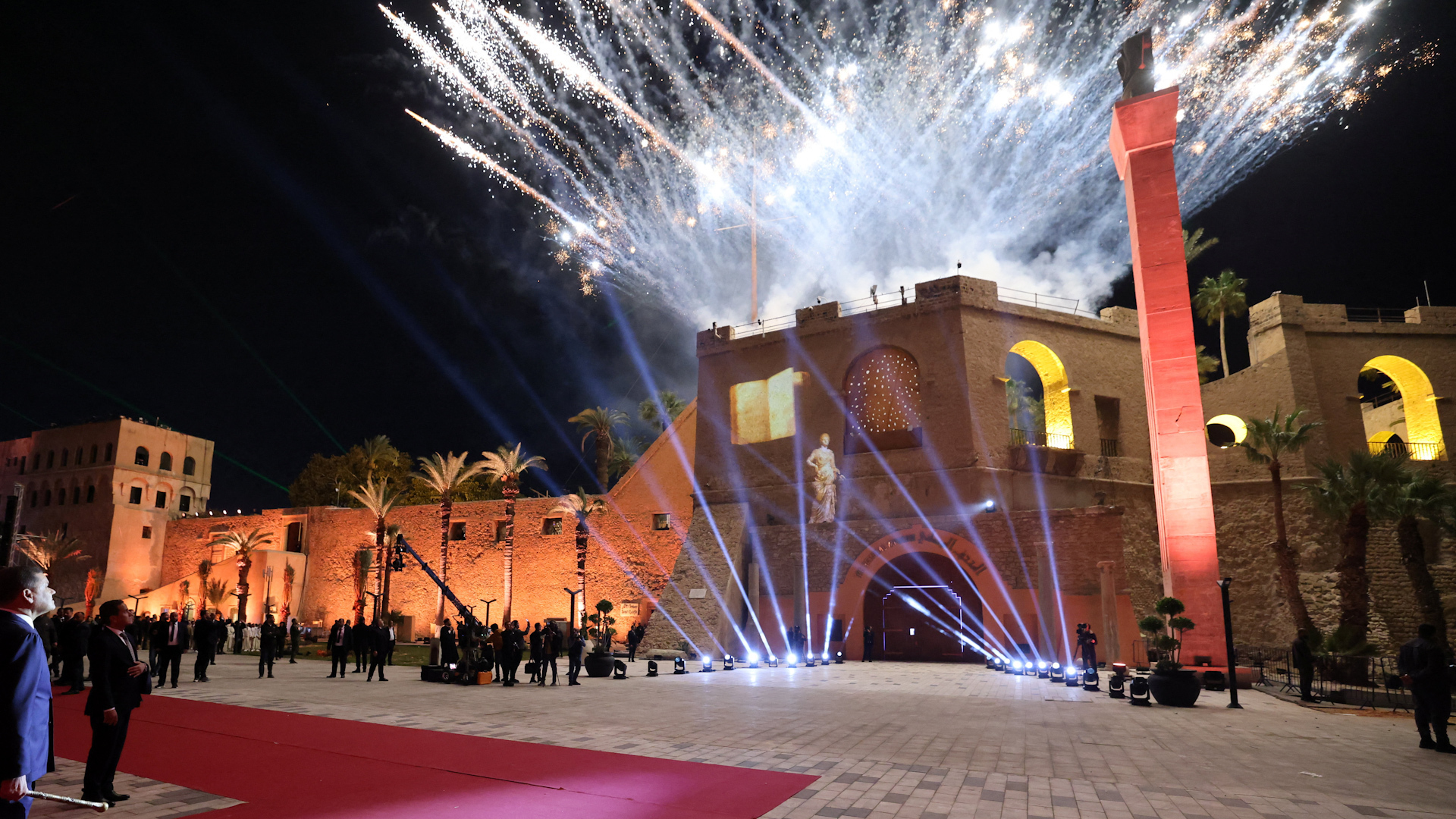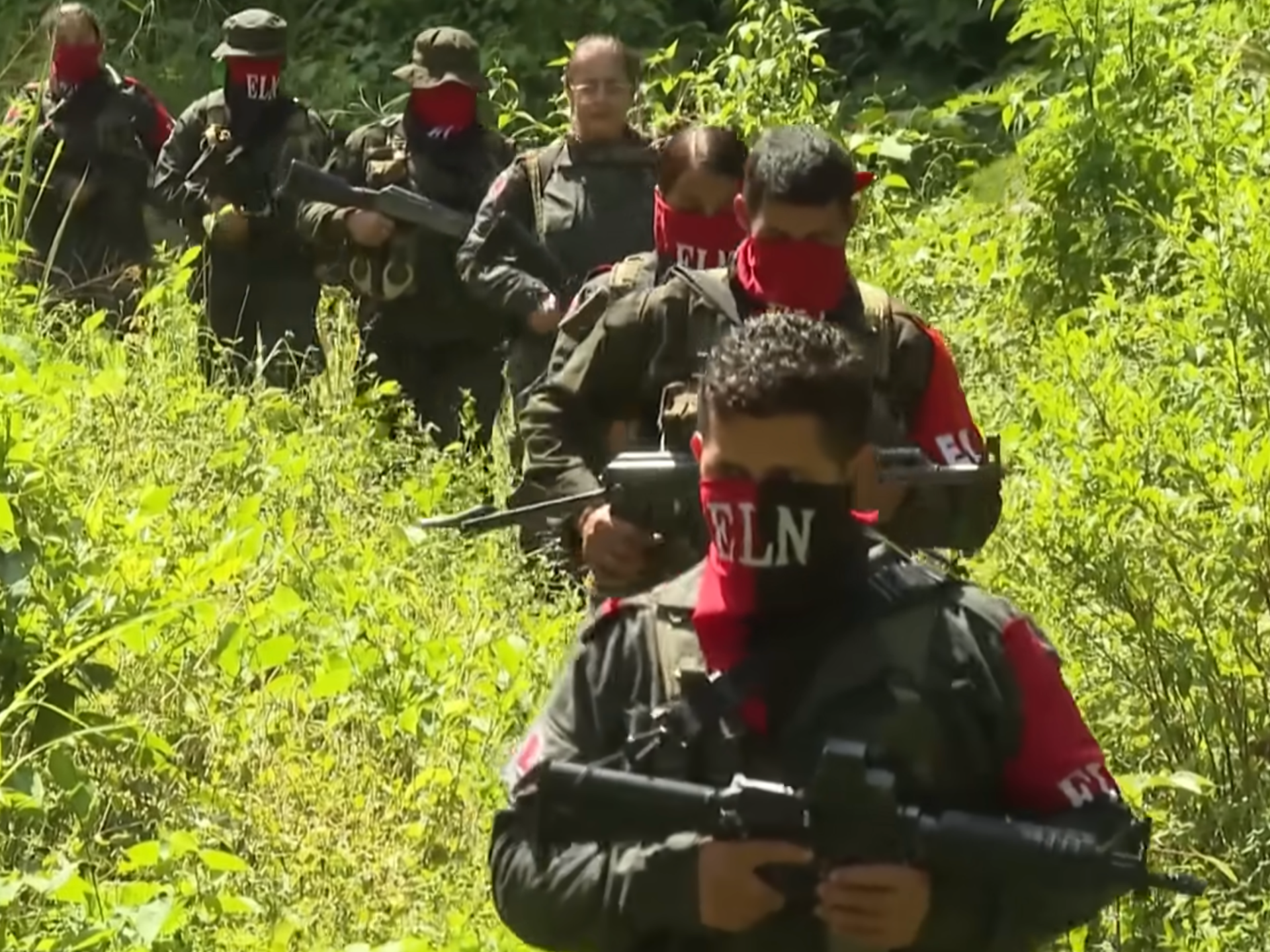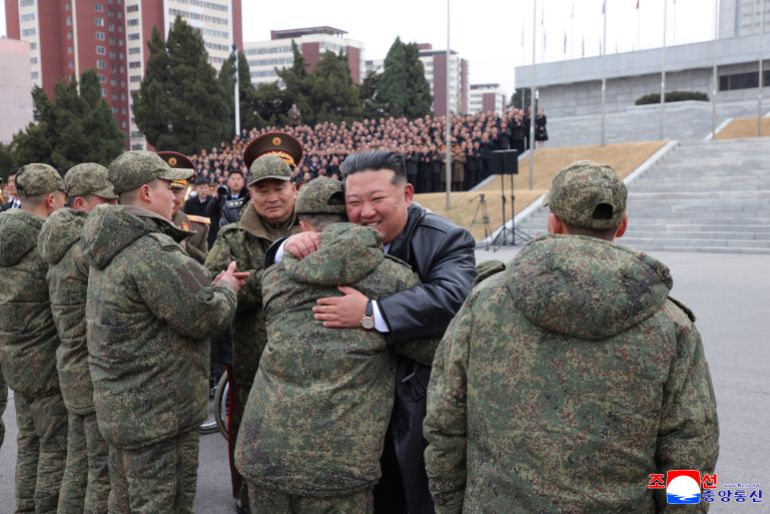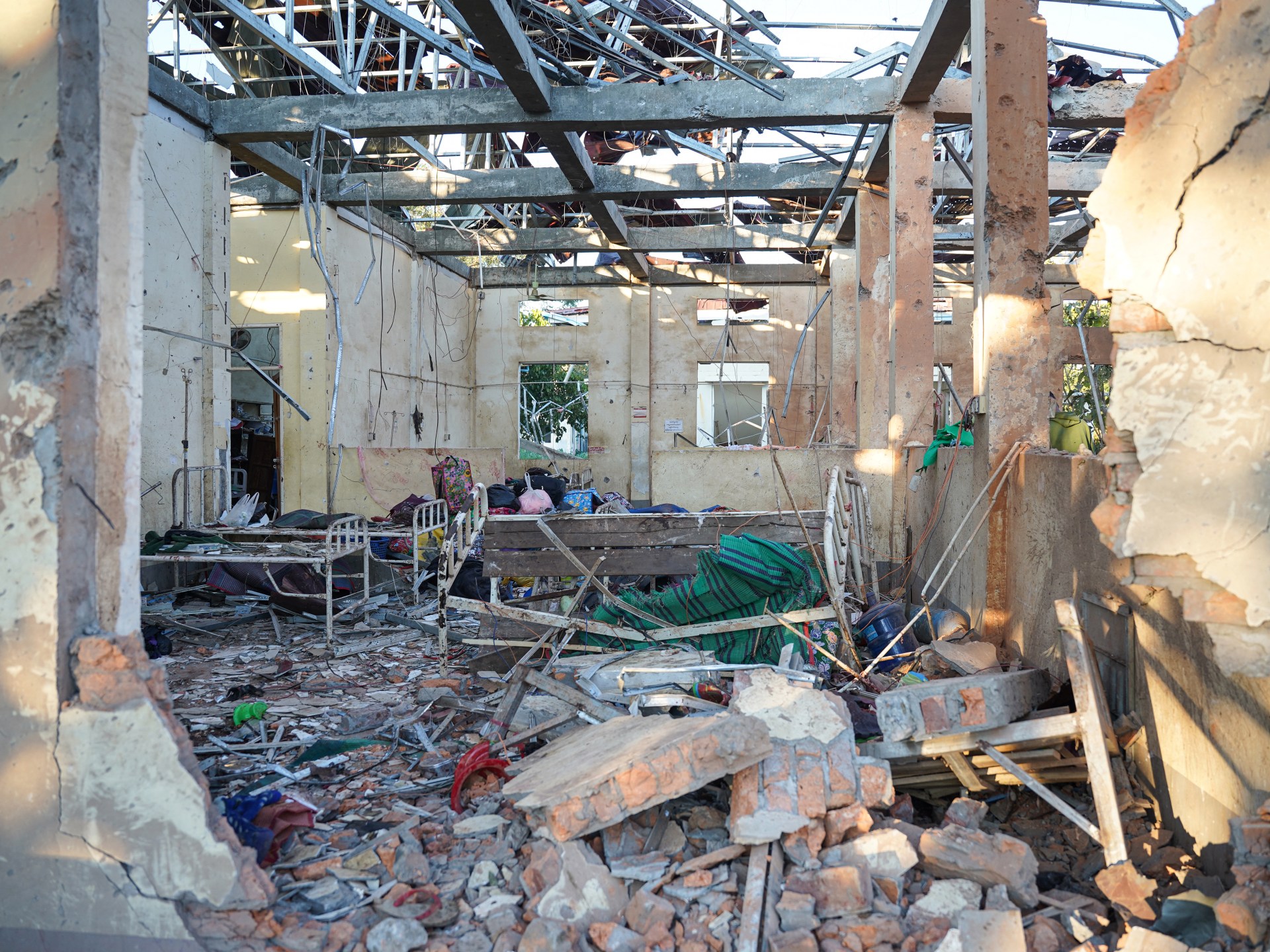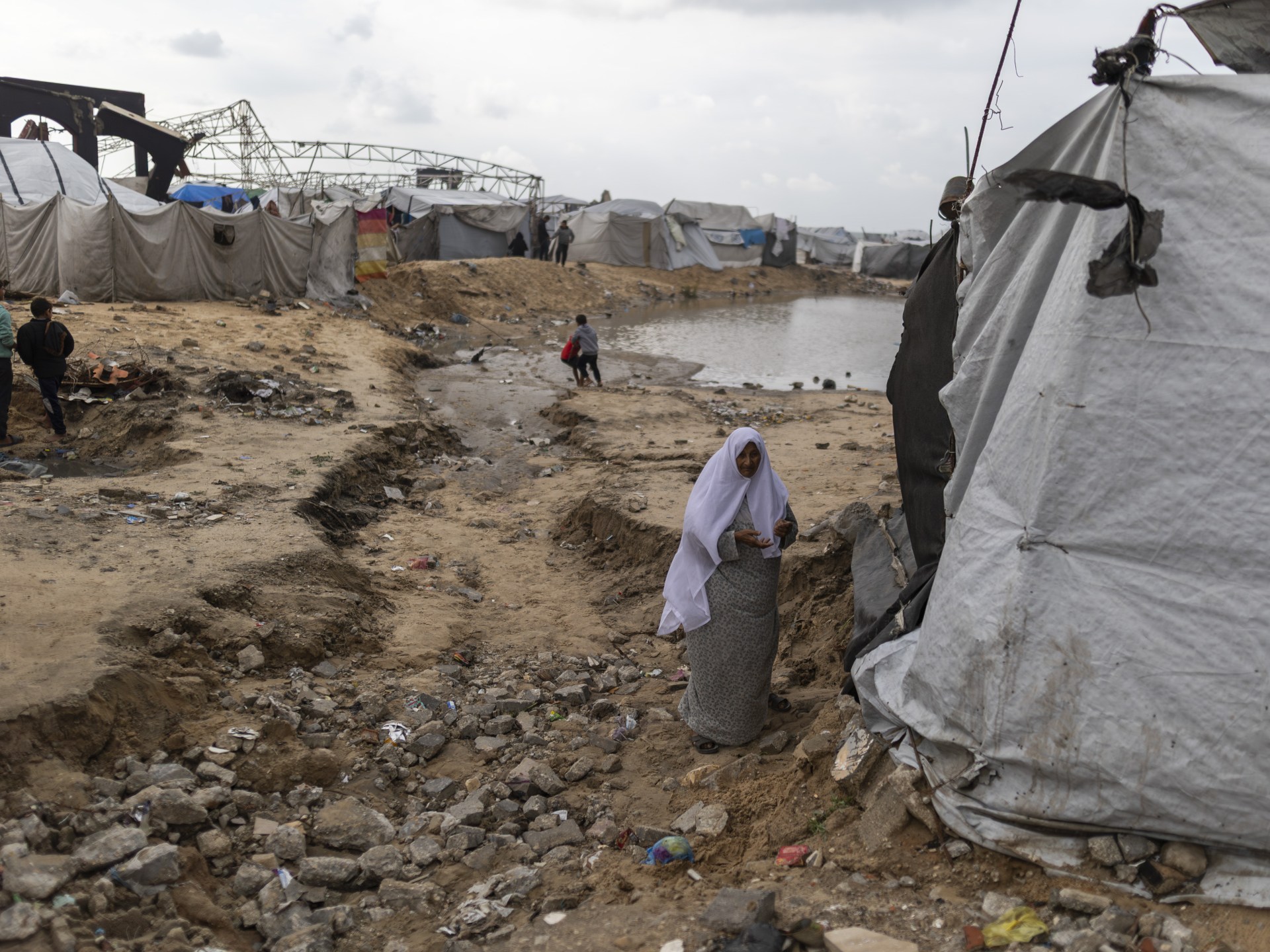Inside a makeshift tent in the heart of the besieged Gaza Strip, Israel’s genocidal war, which has destroyed neighbourhoods, schools and hospitals, decimated families and shattered lives for more than two years, no longer exists.
Virtual reality technology is taking Palestinian children struggling with physical and psychological wounds to a world away, where they can feel safe again.
Recommended Stories
list of 3 itemsend of list
“After I was injured in the head, I try to forget the pain,” Salah Abu Rukba, a Palestinian child taking part in the sessions, told Al Jazeera at the VR Tent in az-Zawayda, central Gaza.
“When I put on the headset, I forget the injury. I feel comfort as I forget the destruction, the war, and even the sound of the drones disappears.”
Lama Abu Dalal, communication officer at Gaza MedTech – the technology initiative spearheading the project – said Abu Rukba and the others have constant reminders of the war etched in their bodies.
But the VR headset makes them forget their life-changing wounds and simply be children again, if only for a few moments.
Gaza MedTech was launched by Palestinian innovator Mosab Ali, who used VR to comfort his injured son. Ali was later killed in an Israeli attack.
Studies have confirmed that VR can have beneficial effects in the treatment of mental disorders, including post-traumatic stress disorder (PTSD). Offering this service in Gaza is hard to sustain, as spare parts of the equipment are barred from entry into Gaza by Israel’s ongoing punishing blockade.

Since a ceasefire formally went into effect on October 10, Israel has allowed slightly more aid in, although far less than Gaza’s needs and what the agreement clearly stipulated. Israel continues to restrict the free flow of humanitarian aid and medical supplies.
Authorities in Gaza say the truce has been violated by Israel at least 738 times since taking effect.
The United Nations estimates that more than 90 percent of children in Gaza are showing signs of severe stress driven by the loss of safety and stability, and will require long-term support to heal from the psychological effect of the conflict.
